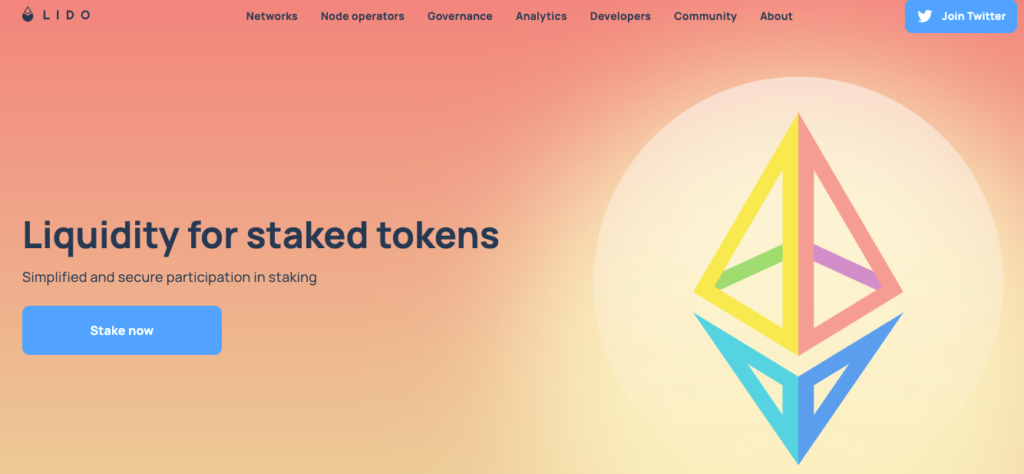-
Lido Finance stands at the forefront of Ethereum 2.0 staking solutions, offering users the ability to stake their Ethereum tokens.
-
The Lido governance proposal and the community’s response to it illustrate the dynamic and collaborative nature of blockchain governance.
-
This event is more than just a momentary occurrence; it’s a significant step forward in the evolution of DeFi.
In a significant move underscoring the ethos of decentralized finance (DeFi), the Lido Finance community has recently engaged in a pivotal vote on a governance proposal.
This event is a testament to Lido’s commitment to decentralized decision-making and marks a crucial juncture in determining the platform’s strategic direction.
Lido Finance’s Governance Revolution
Lido Finance stands at the forefront of Ethereum 2.0 staking solutions, offering users the ability to stake their Ethereum tokens without the need for locking assets or managing staking infrastructure. This convenience comes with the added benefit of liquidity and yield generation within the Ethereum ecosystem, distinguishing Lido as a cornerstone of the DeFi space.
The unique hash of the governance proposal became a focal point for community discussion. It signifies a broader trend within the crypto sector, where decentralized autonomous organizations (DAOs) empower token holders with a voice in critical operational decisions. This model epitomizes blockchain’s foundational promise of decentralization, granting stakeholders a direct hand in shaping the platform’s future.
The implications of Lido’s governance vote extend far beyond the immediate outcomes. As a beacon in the DeFi landscape, Lido’s embrace of decentralized governance models serves as a blueprint for emerging crypto projects. This approach ensures that the platform remains adaptable, innovative, and aligned with its community’s values, setting a standard for participatory governance in the DeFi ecosystem.
Also, Read Ethereum 2.0 shows signs of increased centralization.
Moreover, the Lido Finance community’s active participation highlights the health and engagement level of its stakeholders. Such vibrant community involvement is crucial for the sustained growth and evolution of DeFi platforms, underscoring the importance of collective decision-making in driving forward the decentralized agenda.
As Lido Finance navigates the complexities of decentralized finance, its governance vote represents a broader movement towards inclusive and democratic decision-making processes in the blockchain industry. By allowing token holders to influence key decisions, Lido not only reinforces its commitment to decentralization but also encourages innovation and transparency within its operations.
The Lido governance proposal and the community’s response to it illustrate the dynamic and collaborative nature of blockchain governance. As the crypto and blockchain industry continues to mature, the role of DAOs and decentralized governance will undoubtedly become more pronounced. Regulators, developers, and users are closely monitoring the decision-making and implementation processes in these decentralized settings.

The recent governance vote within the Lido Finance community is a shining example of the potential for decentralized decision-making to not only guide the development of a platform but also to reinforce the core principles of DeFi.
This event is more than just a momentary occurrence; it’s a significant step forward in the evolution of DeFi, showcasing how decentralized autonomous organizations (DAOs) can effectively leverage community input to make strategic decisions that ensure long-term growth and sustainability.
Lido Finance’s approach to governance illustrates the power of DAOs to facilitate meaningful participation from community members. This process not only democratizes decision-making but also enhances the platform’s adaptability and responsiveness to the needs of its user base.
The successful execution of such governance proposals embodies the potential for DAOs to serve as a robust mechanism for decentralized decision-making within the DeFi ecosystem.
The implications of Lido Finance’s governance activities extend beyond the confines of the platform, offering valuable insights into the governance structures that can drive the future of DeFi. As more crypto projects adopt DAO models, the principles of transparency, inclusivity, and collective decision-making are becoming increasingly central to the DeFi narrative.
This shift is indicative of a broader trend towards more democratic forms of governance in the digital age, with blockchain technology at its heart.
The Lido community’s engagement in governance votes is a beacon for the entire DeFi sector, highlighting the critical role that decentralized governance plays in the development and success of crypto projects.
As the blockchain and DeFi landscapes continue to evolve, the lessons learned from Lido’s approach to governance will undoubtedly influence the design and implementation of DAOs across the spectrum of decentralized finance.
This moment in Lido’s history marks a milestone for the platform and sets a precedent for the future of decentralized decision-making, underscoring the transformative power of collective action in shaping the next generation of DeFi innovations.
In conclusion, Lido’s recent governance vote is a landmark event that underscores the platform’s dedication to decentralized principles and collective decision-making. As DeFi continues to evolve, the outcomes of such governance initiatives will likely influence not only the future of individual projects like Lido but also the broader trajectory of decentralized governance models in the blockchain industry.
This is a clear indication of the maturing landscape of DeFi, where community engagement and decentralized decision-making are pivotal to shaping the future of finance.
Also, Read Key takeaways from the Coingecko 2023 Q2 crypto industry report.
